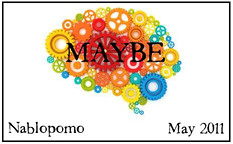First, here's an event I would have posted about this morning, but Blogger was having issues so I had to wait until tonight.
Model D Speaker Series: Urban Mobility
Join us Thursday, May 26 to learn about the future of transit and cycling in the city. Panelists include Kenneth Cockrel, Jr., Detroit City Council; Todd Scott; Michigan Trails and Greenways Alliance (MTGA); Kelli Kavanaugh, co-owner of Wheelhouse Detroit; Robin Boyle, Wayne State University and Carolyn Helmke, Chicago-based transportation consultant.I was invited to this, but couldn't attend because I had to teach and couldn't take the night off, as I wanted to get the students ready for an exam next week that they'll take while I'm swatting a hornet. Too bad. However, I'm sure that Model D will write about the talk in a couple of weeks. Stay tuned for a post about the evening.
On the waterfront: Community life, blue and green economies spur growth in Jefferson East
Dennis Archambault | Tuesday, May 10, 2011
Hundreds of people pass through Detroit's Jefferson East gateway at Alter Road on their daily commute. Few notice much north or south of Jefferson, but Jefferson East is a corridor of economic potential.While I was reading all the mainstream press articles, I was missing this. I plan on reading it again, and I recommend you read it, too.
This riverfront community, boasting more than 160 acres of waterfront parkland, a new greenway, and more boat slips than anywhere in the city, is awakening to the post-recession era and reshaping of Detroit, more expansive in scope than its original seven-block area, but remaining true to its original residential and retail development mission. Its future lies in the "blue" and "green" economies – waterfront and ecology.
Master activator: Tony Goldman envisions Detroit as "capital of the experimental"
Walter Wasacz | Tuesday, May 10, 2011
On his first ever visit to Detroit last week Tony Goldman saw enough to come away with ideas and solutions that could fill the rest of the century. He experienced fledgling micro-economies taking shape in Corktown and Eastern Market; he also saw blighted buildings in the heart of downtown he says no major commercial center can afford. He saw grassroots entrepreneurship full of commitment and passion; but also says he encountered a lack of "central vision needed to galvanize and follow through on a campaign to the end."And here's another article full of the spirit of Detroit as Ground Zero of the post-industrial future, a place full of possiblities. My wife sees this, too. Not only was this a great city, it still is a great city, and it can rise again. All it needs is more people that believe in it, and the will to act.
Goldman came back to New York full of ideas, he tells me, after three days spent "absorbing and observing" the city with redeveloper-entrepreneur Phillip Cooley, meeting with Mayor Dave Bing, and speaking at an event at an Eastern Market space with Dennis Scholl of the Knight Foundation.
Taking root: Just in time for growing season, we begin series on urban farming in the D
Patrick Crouch | Tuesday, April 26, 2011
Much has been made of the burgeoning urban agriculture movement in Detroit in the national and international press. Reporters from around the world have come to tell our story. I have personally spoken with journalists from Toronto, London, New York, Los Angeles, and Paris. This work is often presented as a brand new movement in the city, a Phoenix rising from the ashes. Reality is much more complex than this, and urban agriculture can never be the panacea that many would like it to be.This article is a great history of the long legacy of urban farming in Detroit. I'm sorry I missed blogging about it for last month's Sprout theme.
Largely missing from the conversation has been the voices of local Detroiters, and my hope is that this column can shed some light on and celebrate the movement in Detroit from our perspective. I'm not inclined to toot my own horn, but I do think that I am qualified and well suited to report on this movement. I've been growing in the city for the last eight years with the Capuchin Soup Kitchen's Earthwork's Urban Farm, I have worked with the Detroit Agriculture Network, currently serve on the Detroit Food Policy Council and the Detroit Agriculture Network's boards, volunteer at Catherine Ferguson Academy's farm, as well as my community garden Hope Takes Root, and am part of several collaborative efforts working to develop our local food system.
Detroit's current reign as the most important city in the United States for urban agriculture, is actually historically warranted. Many of the street names and neighborhoods of our city still bear the moniker of French ribbon farmers. Back in the 1880s Mayor Hazen "potato patch" Pingree made lands being held undeveloped by land speculators available to low income Detroiters, to improve their access to healthy food, as well as aid their ability to sell excess in their neighborhoods. Pingree, despite public mocking, believed in this idea so strongly he even went so far as to sell his favorite horse. This idea spread through out the country to cities like Philadelphia, Cleveland, and New York.
All the above was just from the Features section. There's lots more in the News section. I'll save that for the next installment on the past month's articles in Model D--no maybe about it!

No comments:
Post a Comment